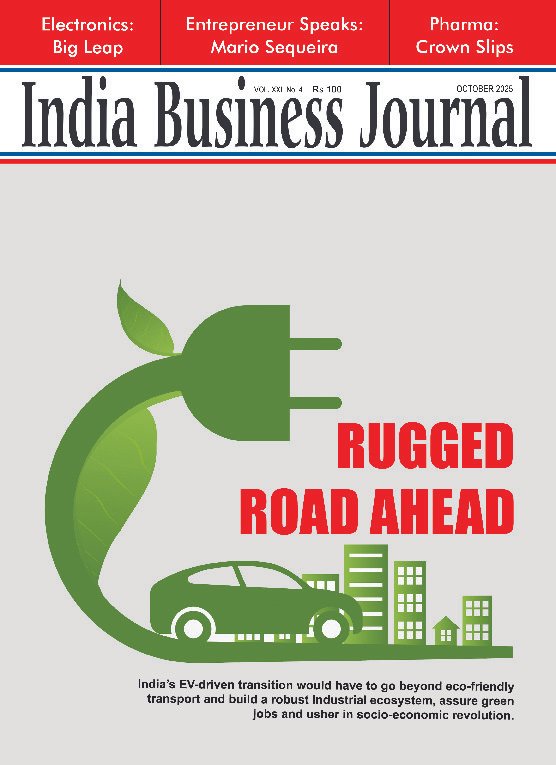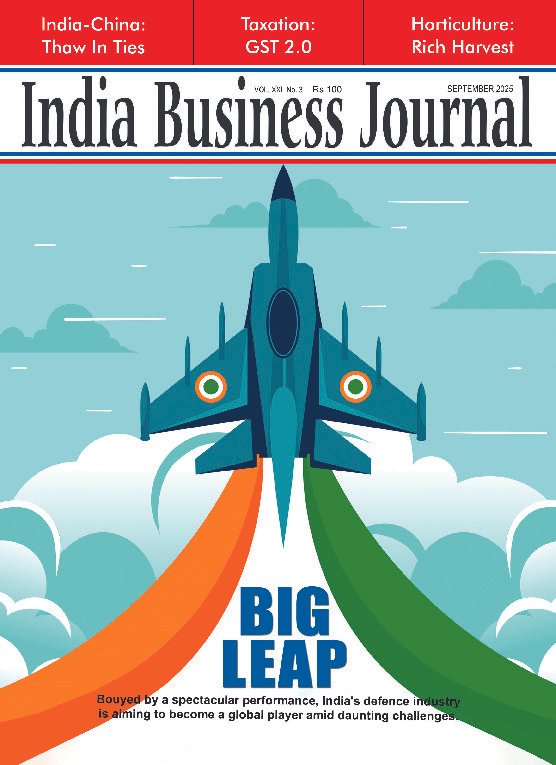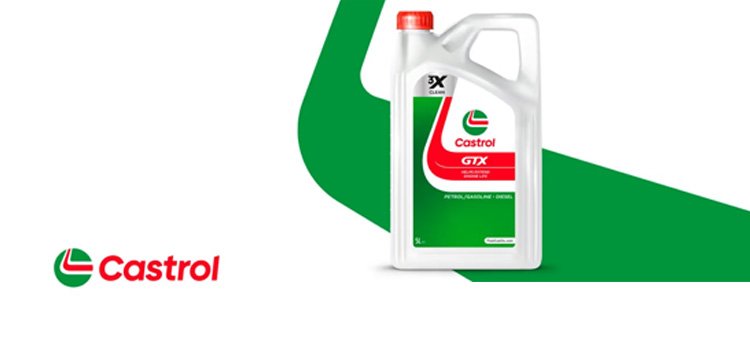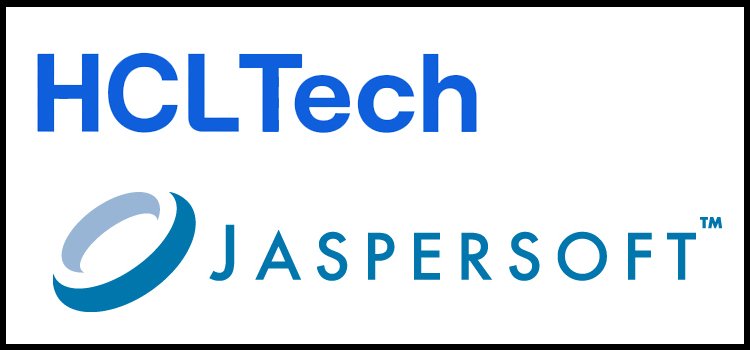CORPORATE
CCI's penalties and directives against Google may get lost in a web of legal wrangles
- IBJ Bureau
- Nov 21, 2022

Google got a taste of India’s regulatory rap in
October this year. The Competition Commission of India (CCI) slapped two
penalties on the US technology company, totalling Rs 2,274.44 crore. The first
fine of Rs 1,338 crore was imposed on Google for abusing its dominant position
in the Android mobile device ecosystem. In the second case, the country’s
competition regulator fined the global search engine Rs 936.44 crore for
abusing its dominant market position in Google Play Store.
The CCI also issued a cease-and-desist order and
directed the tech major to modify its conduct within a defined timeline. The
anti-trust regulator directed Google to take corrective actions, including allowing
original equipment manufacturers (OEMs) or mobile phone device-makers to offer
third-party app stores in Google Play Store and permitting mobile users to
uninstall Google-promoted apps, among others.
The CCI’s recent orders are a culmination of an extensive
investigation launched by it against Google’s various policies in 2020. Some domestic
app developers had complained to the competition regulator that many of
Google’s policies were anti-competitive in nature. Those policies put severe
restrictions and restrained other developers from growing their apps. These
complaints had triggered the CCI’s investigation into Google’s policies and
practices.
Reacting to the fines, Google had said that it remained
committed to its users and developers and was reviewing the decision to
evaluate the next steps after the CCI had fined it. Analysts tracking the
technology sector opine that Google can challenge the CCI’s orders in the
National Company Law Appellate Tribunal (NCLAT) or can move courts against the
regulators’ penalties and directives.
How
Google dominates
This is for the first time that Google is facing
punitive actions and penalties on such a massive scale in India. In fact, anti-trust
lawsuits are not at all new to the search engine. For a long time now, Google has
been fighting multiple legal cases across the world.
The tech company has been under the scanner of
competition watchdogs in the UK, the US, the European Union (EU) and a few
other countries. In the EU, Google faces nearly $8 billion in fines. The
company is entangled in many cases related to anti-competitive practices in the
US, brought about by the federal government’s Department of Justice and other regulatory
authorities across many US States. Last August, South Korea had mandated providing
a choice in app store payments. This effectively bars companies like Google and
Apple from compelling app developers to use only their payment systems.
Incidentally, Google is not alone in abusing its
dominant position. Almost every Big-Tech company is enmeshed in a legal tussle
with global regulators over anti-competitive policies and practices. Google
finds itself prominently on the wrong side of Indian law primarily because of
its Android operating system (OS), which powers over 95 per cent of the country’s
smartphones.
Google had acquired Android, an open-source mobile
OS, in 2005. Since then, the company has had an edge over its competitors, with
Android accounting for about 71 per cent of the global market share of mobile operating
systems. Google has been able to exploit the licensing of the Android OS to its
advantage by entering into multiple agreements with OEMs and app developers
across the world.
Google’s Mobile Application Distribution Agreement
(MADA) mandates OEMs to pre-install its Google Play Store – which houses all
its apps – and Chrome browser on all Android-run mobile devices. Besides, with Revenue
Sharing Agreement (RSA), Google pays a certain percentage of share of its advertising
revenue to OEMs for exclusively installing Google apps on their smart mobile
devices. Similarly, Anti-Fragmentation Agreement (AFA) and Android
Compatibility Commitment (ACC) restrict OEMs from manufacturing, marketing or
distributing devices based on Android forks or modified versions of Android.
Meanwhile, Google Play Store policies require app developers to exclusively and mandatorily use Google Play Billing System (GPBS) both for receiving payments for apps and other digital products and also for certain in-app purchases. Further, app developers cannot provide users within their apps a direct link to a webpage containing an alternative payment method. The app developers are also prohibited from wording their instructions to their users in such a way that encourages users to purchase digital products through a third-party payment system.
Google’s
Tools Of Domination
- MADA mandates OEMs to pre-install Google Play Store on all
Android-run mobile devices.
- With RSA, Google pays a certain percentage of
share of its advertising revenue to OEMs for exclusively installing Google apps
on their smart mobile devices.
- AFA and ACC restrict OEMs from manufacturing,
marketing or distributing devices based on Android forks or modified versions
of Android.
- App developers are mandatorily required to use GPBS for receiving payments for apps and other digital products.
If app developers do not comply with the GPBS, they
are not permitted to list their apps on Google Play Store. As a result, app developers
end up losing out on a vast pool of potential customers. “Making access to the
Play Store dependent on mandatory usage of GPBS for paid apps and in-app
purchases is one sided and arbitrary and devoid of any legitimate business
interest. The app developers are left bereft of the inherent choice to use
payment processor of their liking from the open market,” notes the CCI’s order.
The combined results of these Google’s agreements with
OEMs and app developers ensure that the tech company’s competitors in search
services market as well as mobile OS market cannot find sufficient distribution
channel to scale up their business. In short, Google’s virtual monopoly in
these markets effectively shuts out competition from other app developers and also
eliminates choice for its users. “The CCI’s findings show how Indian indigenous
apps have been suppressed, and that is the reason why most Indians have not
been able to access more local Indian apps,” points out Rohan Verma, the CEO
and ED of MapmyIndia, a direct competitor to Google Maps.
A
landmark order
The CCI’s directives, if implemented earnestly, will
have far-reaching implications on the digital ecosystem in the country. The
penalties – mind-blogging as they certainly are – have hit the headlines and
stand out prominently. However, there are other components of the competition
regulator’s order that can change the very landscape of the digital
transactions.
The CCI has ordered Google to ensure that OEMs are
permitted to offer other app stores on the Google Play Store. It has instructed
the tech company to also allow its users to uninstall its apps and facilitate
them to choose their default search engine – instead of Google Chrome being
thrust upon them – during initial device setup.
“The measures announced by the CCI may not have a
huge impact on Google in the short term as companies will need to invest to
make their apps discoverable. Besides, new app stores do not enjoy the reach
Google has. In the long term, however, developers and OEMs may gain from the CCI’s
measures,” opines said Navkendar Singh, the associate vice-president (AVP) of
IDC India, South Asia and Australia, New Zealand.
Google, in the meanwhile, has put out its views on
the charges of anti-competitive practices levelled on it by the CCI. “Android
users have considerable freedom to customise their phones and to install apps
that compete with Google’s besides the ability to quickly and easily move or
disable pre-installed apps, including Google’s apps,” the tech company has
argued.
The company justifies its restrictions imposed by
the MADA as promotional opportunities for it to earn revenue from its services.
Google points out that it is able to offer Android OS free of cost to OEMs
because of the MADA. It adds that dismantling the AFA and ACC and fragmenting
the Android OS will make it difficult for app developers to make their apps
compatible with multiple versions of Android. Google also stresses that sharing
advertising revenue with OEMs, according to the RSA, for having exclusive
presence of mobile devices reduces the cost for OEMs and also thereby makes
mobile handsets cheaper.
Following the CCI’s order, Google has paused
enforcement of the GPBS for in-app purchases for app developers based in India.
However, the GPBS will still apply for in-app digital content purchases for
users outside of India. In other words, if Indian app developers offer to sell digital
content to users outside India, they will need to comply with the GPBS.
Moreover, in March, Google had launched a pilot
programme that allows a few app developers to offer an additional billing
system alongside that of GPBS. Earlier this year, the company had reduced the commission
it charges from app developers for their sale of digital contents from 30 to 15
per cent. The reduced commission applies to the first $1 million of revenue
earned by app developers each year.
The
way forward
The CCI’s directives have understandably brought
cheer among Indian app developers. They have hailed the competition regulator’s
order as a pathbreaking pronouncement that can provide a major fillip to
homegrown apps and app developers.
“The CCI’s order is fantastic news for all startups
in India, and it can build competitive products against the tech giant. As an
app store, we are delighted by the decision of being allowed to distribute
alternative app stores through the default Android app store, Google Play
Store,” notes Rakesh Deshmukh, the co-founder and CEO of homegrown app store Indus
OS. Mr Deshmukh further adds: “From our decade-long experience, we have realised
that if there has to be safe competition with Google services, alterations need
to be made both at the OEM and secondary Android levels. We will continue
fighting this battle.”
After the CCI’s order, Google has suspended GPBS for
in-app purchases for app developers based in India. Months prior to the order,
the technology company had also made concessions by allowing a few app
developers to provide an alternative payment system facility along with the
GPBS as a pilot project. It had even halved the commission charged on app
developers.
So, is Google going to yield to the CCI’s directives
and accordingly change its policies and practices? India is one of the biggest
markets for the tech major, and hence it cannot afford to fall foul of the
Indian regulations. Hence, it can negotiate with the CCI, make the required
changes and seek a reduction in the penalties. The other option before Google
is to appeal against the CCI’s order at the NCLAT or move courts to seek a
reversal of the order. The minor concessions apart, Google is most likely to
fight against the order in law courts. This is how the technology company has
reacted globally by battling several regulators in their respective courts of
law.
The CCI, in the meantime, has launched investigations
into anti-competitive policies and practices of other global tech giants, such
as Amazon, Walmart-owned Flipkart, WhatsApp and Meta Platforms (formerly
Facebook). On the face of it, it looks like the CCI may pull up the global tech
giants, get them to mend their ways and make the digital space conducive to
competition.
However, the reality is far more pessimistic. The
past record of the CCI’s regulatory actions is rather disappointing. Most of
the competition regulator’s orders have been challenged in the NCLAT and many
high courts as well as the Supreme Court, with quite a large number of orders
having been set aside. An official reply in the Rajya Sabha in July reveals
that the CCI had imposed penalties amounting to Rs 4,369.39 crore in 241 cases between
April 2017 and June 2022. But the regulator has been able to collect only Rs 197.88
crore in penalties, making up for a meagre 4.5 per cent of the total penalties
imposed. In most cases, the fined companies were able to get the courts to set
aside or stay the penalties.
The CCI cannot be solely blamed for these shortcomings. The regulator is severely short of staff, and official records show that its grants and outlays have been annually slashed. In such circumstances, it is quite a challenge to conduct investigations into a complex web of deals done by big businesses and global corporations and to come up with reports that can stand scrutiny in the courts.
Digitalisation has touched and changed very aspect of modern life today. And most of the digital processes have been the result of remarkable innovation of global technology companies. However, the Big Tech – comprising a few big technology companies – has managed to acquire many of their smaller peers. This has facilitated these big corporations to own the patented products, including apps, and have undisputed monopoly in the markets. The CCI and other global regulators are rightly battling these monopolistic practices. But their efforts have most often ended up getting stuck in protracted legal wrangles.





















Report By
View Reporter News